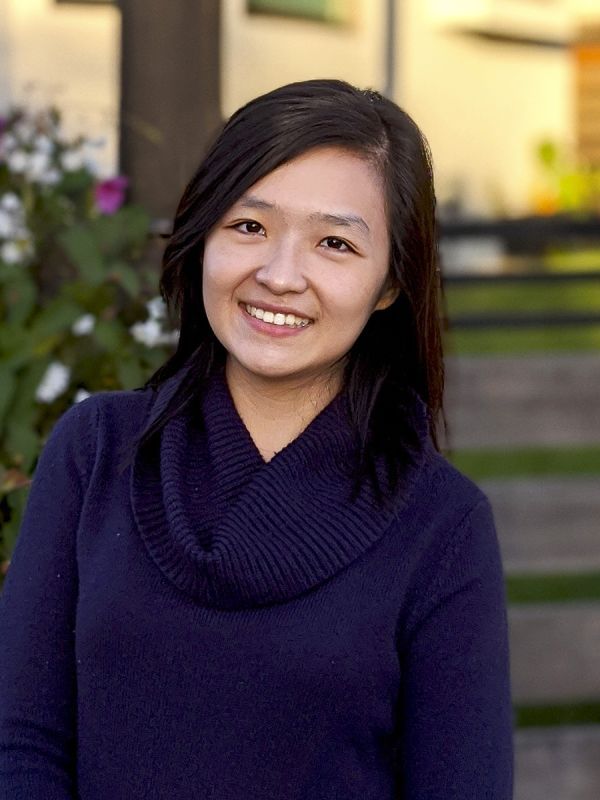
Cynthia Lee
At Pacific Since: 2020
Cynthia Lee ’19, PharmD, MS, BCPS earned her bachelor of science in biochemistry from University of Minnesota Twin Cities and her doctor of pharmacy from University of North Carolina Eshelman School of Pharmacy. She completed a PGY-1 pharmacy practice residency at University of Chicago Medicine. Dr. Lee completed a pharmacy practice fellowship and earned her master of science in pharmacoeconomics, health care outcomes and clinical services from University of the Pacific.
The convergence of science and health care led her to pursue a career in pharmacy. She credits her success to the many mentors, preceptors and colleagues who have guided her along the way. What she loves about teaching at Pacific is working with motivated pharmacy students. She also appreciates the opportunity to work with supportive colleagues who are experts in teaching, pharmacy practice and research.
She is a board-certified pharmacotherapy specialist and a member of the American College of Clinical Pharmacy, the American Society of Health-System Pharmacists and the American Association of Colleges of Pharmacy.
Dr. Lee was born and raised in Indonesia. She was formerly a professional musician and twice she represented Indonesia at the international level. In the span of 10 years, she lived in six states and the District of Columbia. She has a passion for travel, both internationally and within the United States. She enjoys trying new restaurants and sampling different cuisines. In the outdoors, she enjoys hiking and camping.
BS in Biochemistry, University of Minnesota Twin Cities, 2012
PharmD, University of North Carolina Eshelman School of Pharmacy, 2016
PGY-1 Pharmacy Practice Residency, University of Chicago Medicine, 2017
Pharmacy Practice Fellowship, University of the Pacific, 2019
MS in Pharmacoeconomics, Health Care Outcomes and Clinical Services, University of the Pacific, 2019
Teaching Philosophy
“As the field of pharmacy advances and more information will continue to expand, my most important role as an educator is to train students the skills they need to be well-rounded practitioners. I provide as much hands-on experiences through incorporating cases in didactic courses and active learning activities in lab or skill courses. I believe these methods allow me to train students to develop critical thinking and problem-solving skills. In experiential education, I focus on a goal-oriented environment where I not only set expectations on what students need to accomplish by the end of their rotation, but they are also welcomed to set their own goals. I found this strategy valuable to engage and motivate my students in their own learning.”
Courses
PHRM 171 — Internal Medicine APPE
PHRM 173 — Hospital Pharmacy APPE
PHRM 184/185 — Elective APPE
PHAR 632 — Case Based Practice IV
Research Summary
“My research focus aims to improve quality of care of patients managed medically and evaluate impact of pharmacist-run services. I am also interested in exploring new, effective teaching methods to advance pharmacy education.”
Research Interests
- Optimization of cardiovascular disease medication management
- Clinical research in improving patient care and pharmacotherapy
- Pharmacoeconomics and health outcomes research on pharmacy services
- Innovative teaching techniques in pharmacy education
Scholarly Activity
Publications
Lee C, Szwak JA, Bastow S, and Sokol S (in press). Impact of a Nurse-driven Diabetic Ketoacidosis Infusion Calculator on the Rate of Hypoglycemia. Journal of Patient Safety. Nov 2019. doi:10.1097/PTS.0000000000000647.
Rogan EL, Ranson CA, Valle-Oseguera CS, Lee C, Gumberg A, Nagin BN, et al (in press). Factors Associated with Medication Related Problems in an Ambulatory Medicare Population and the Case for Medication Therapy Management. Res Social Adm Pharm. Aug 2019. doi:10.1016/j.sapharm.2019.08.033.
Maas BM, Francis O, Mollan KR, Lee C, Cottrell ML, Prince HMA, et al. Concentrations of Pro-inflammatory Cytokines Do Not Explain the Association Between Senescence Marker p16INK4a and Intracellular Emtricitabine/Tenofovir Metabolite and Endogenous Nucleotide Exposures in Adults with HIV Infection. PLoS ONE. Dec 2016;11(12):1-11.
Prislan I, Lee H-T, Lee C, and Marky LA. The Size of the Internal Loop in DNA Hairpins Influences Their Targetting with Partially Complementary Strands. J Phys Chem B. 2015;119(1):96-104.
Prislan I, Lee H-T, Lee C, and Marky LA. The Size of Internal Loops Influences the Unfolding Thermodynamics of DNA Hairpins. ACSSymposium Series. 2011;1082:93-110.


